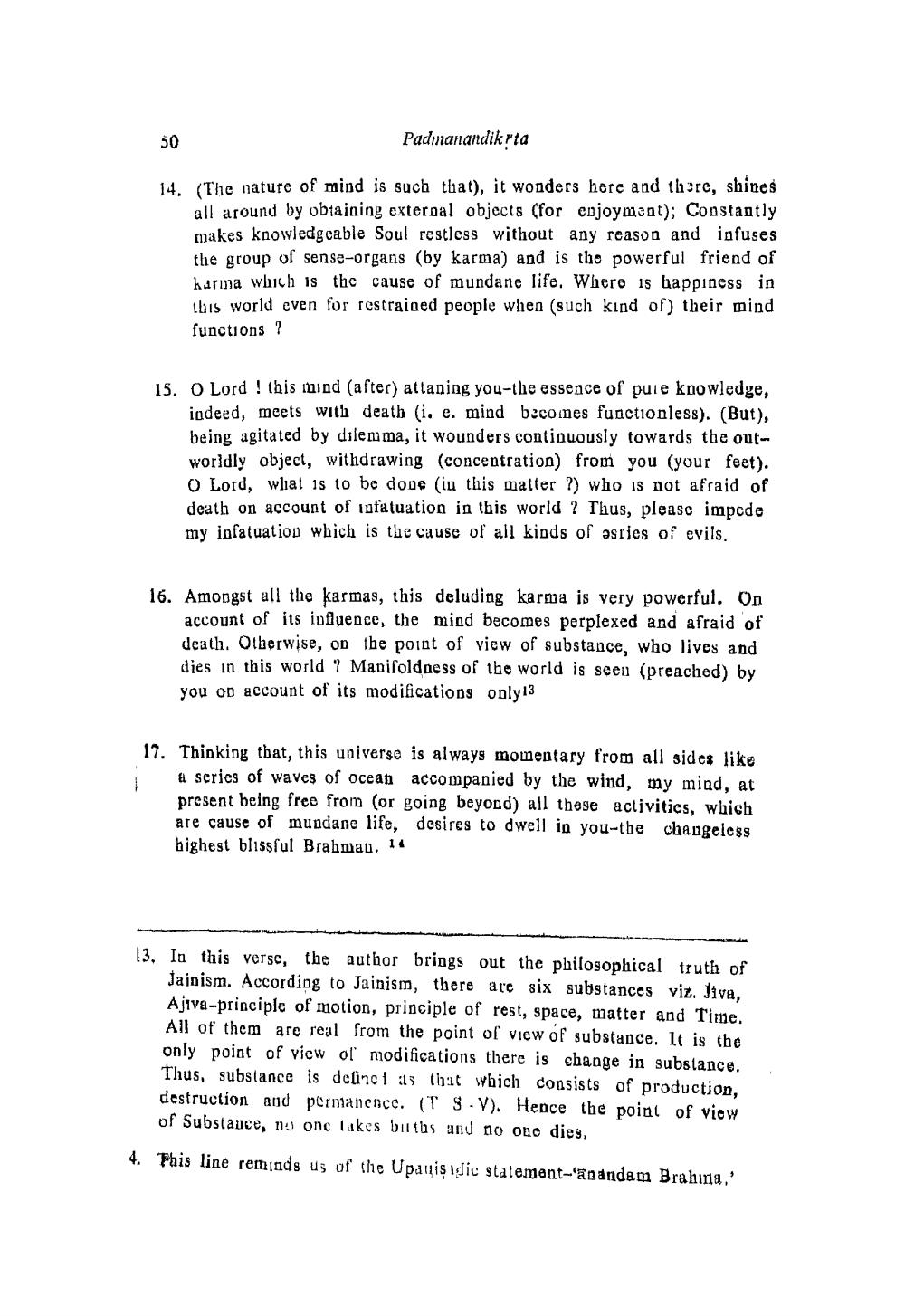________________
50
Padmanandikyta
14. (The nature of mind is such that), it wonders here and there, shines
all around by obtaining external objects (for enjoyment); Constantly makes knowledgeable Soul restless without any reason and infuses the group of sense-organs (by karma) and is the powerful friend of harma which is the cause of mundane life. Where is happiness in this world even for restrained people when (such kind of) their mind functions ?
15. O Lord ! this mind (after) atlaning you-the essence of pure knowledge,
indeed, meets with death (i. e. mind becomes functionless). (But), being agitated by dilemma, it wounders continuously towards the outworldly object, withdrawing (concentration) from you (your feet). O Lord, wlial is to be done (iu this matter ?) who is not afraid of death on account of infatuation in this world ? Thus, please impede my infatuation which is the cause of all kinds of əsries of evils.
16. Amongst all the karmas, this deluding karma is very powerful. On
account of its influence, the mind becomes perplexed and afraid of death. Otherwise, on the point of view of substance, who lives and dies in this world ? Manifoldness of the world is sceu (preached) by you on account of its modifications only 13
17. Thinking that, this universe is always momentary from all sides like
a series of waves of ocean accompanied by the wind, my mind, at present being free from (or going beyond) all these activities, which are cause of mundane life, desires to dwell in you-the changeless highest blissful Brahmau. 11
13. In this verse, the author brings out the philosophical truth of
Jajnism. According to Jainism, there are six substances vit. Jiva, Ajiva-principle of motion, principle of rest, space, matter and Time. All of them are real from the point of view of substance. It is the only point of view of modifications there is change in substance. Thus, substance is delinci is that which consists of production, destruction and permanence. (T S-V). Hence the point of view of Substance, nu one takes births and no one dies,
4. This line reminds us of the Upayiş gic statement-anandam Brahina.'




